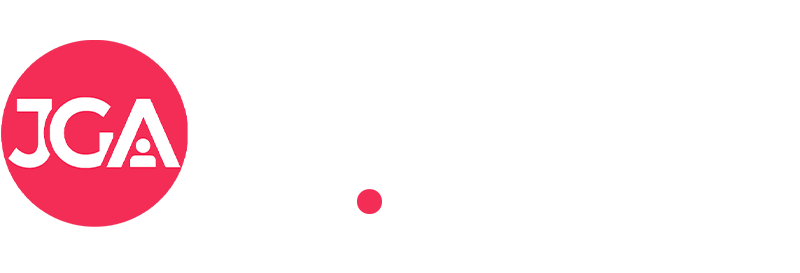Are Blockchain Payroll Companies the Payroll Future? Article 6/10
This is article 6 of 10 forming the sixth part of a series of articles dedicated to my attempt at helping Payroll & HR professionals understand the potential impact that both Blockchain and Cryptocurrencies could have on the future of Payroll & HR.
To view the earlier articles in the series – click here:
- Article 1: How will Blockchain, Cryptocurrency and DLT technologies affect the future of Payroll & HR
- Article 2: Will companies start to payroll its employees in cryptocurrency?
- Article 3: How will blockchain affect HR Recruitment Processes?
- Article 4: What are smart contracts and how will they affect payroll and HR?
- Article 5: What benefits could blockchain bring to the payroll industry
Also, check out The Payroll Podcast with Anita Lettink, SVP of Global Alliances at NGA HR which discusses ‘Blockchain and the Future of Payroll & HR’ in considerable detail if you wish to fast-track your learning. You can subscribe to the Payroll Podcast here: Apple Podcasts
So, today, I would like to highlight some blockchain payroll companies that have already launched so that we can ask the question:
Are Blockchain Payroll Companies the Payroll Future?
If you have read my previous articles on this subject, it may come as a bit of a surprise to you to hear that there are already a number of blockchain-based payroll companies which have launched and exist over the past couple of years.
Several of those companies mentioned also raised seed capital and funding by using ICOs (Initial Coin Offerings).
These are cryptocurrency-based funding rounds bypass venture capitalists and banks by instead, promising future value to individual and retail investors.
In fact, to date hundreds of millions of dollars have been raised by ICOs, the cryptocurrency version of IPOs (Initial Public Offerings) in which companies sell off proportions of their public stock to raise funds for expansion.
The neat trick with ICOs is that blockchain companies do not have to give away any equity in their company to reach astronomical funding sums.
Accountants KPMG advised on the £5m launch of Etch, a Dublin-based service https://www.accountancydaily.co/kpmg-advises-launch-blockchain-payroll-company which claims to be “the first innovation in payroll since the Industrial Revolution”. It employs the Ethereum blockchain to allow employers to pay workers in real time.
Chris Mills, head of blockchain for KPMG UK told the press:
“Etch is a superb initiative because it provides guaranteed payments in real-time for all work completed, something that no other platform is currently known to achieve.
Etch pays workers in the currency of their choice, and they can they forward on some or all of that currency to overseas family members or dependents.
It would appear a good system, especially as it focuses on the construction industry which has a relatively higher proportion of workers who send money overseas on a regular basis.
The question we must ask is:
Do companies always have employee payrolls ready to be paid at the point of commissioning work? Would real-time payments really work well?
Phillipines-based Salarium is one of the more established and better-known blockchain payroll companies.
Salarium has raised tens of millions of dollars with the ICO (Initial Coin Offering) of their SALPay token (SAL).
It claims to automate payroll using its own proprietary software – but appears to have some of the same flaws that affect the more modern cloud-based, mobile-first payroll systems.
- You cannot outsource your payroll to Salarium
- You still have to input the payroll data yourself
- You have to enter into their proprietary payments system
One prominent blockchain-for-business skeptic is journalist David Gerard. In a talk titled Blockchain: From Hype to Reality[https://davidgerard.co.uk/blockchain/2018/04/19/welcome-to-the-blockchain-slides-from-berenbergs-blockchain-from-hype-to-reality/ he noted the questions you should ask any blockchain salesperson.
- Does the software do everything that you are telling me it does?
- Are we confusing ‘could’ with ‘is’? How many other companies have already successfully integrated this into their systems?
- What does blockchain-based payroll do that a centralised database does not?
- Will the system scale to the size of the payroll data you produce? If so, how?
- If the system you want to implement to deal with people you already trust? If so, why use blockchain?
Ultimately, the fact that payroll companies based on blockchain already exist suggests that more will follow this trend in the future. However, these companies (at present) do seem to be focused within the FinTech space. For blockchain payrolls companies to become more widespread, I think that we still need to answer the following fundamental question:
Will using blockchain-based payroll software save me money, improve security and enhance efficiency over and above any other compatible programme or system currently available?
What do you think?
Please share and comment – I will try to interact with as many as possible!
Future articles in the series will include:
- How to build a blockchain-based payroll system
- When should businesses start planning for blockchain?
- Risks and costs
- Conclusion – is blockchain and crypto the future?
Thanks!
This article was written by Nick Day, CEO of JGA Recruitment – the leading Payroll, HR & Reward Recruitment Specialists.
Nick Day | CEO
JGA Recruitment Group
Payroll, HR & Reward Specialist Recruiters
Email: nick@jgarecruitmentinc.com
Tel: 01727 800 377
Sources:




